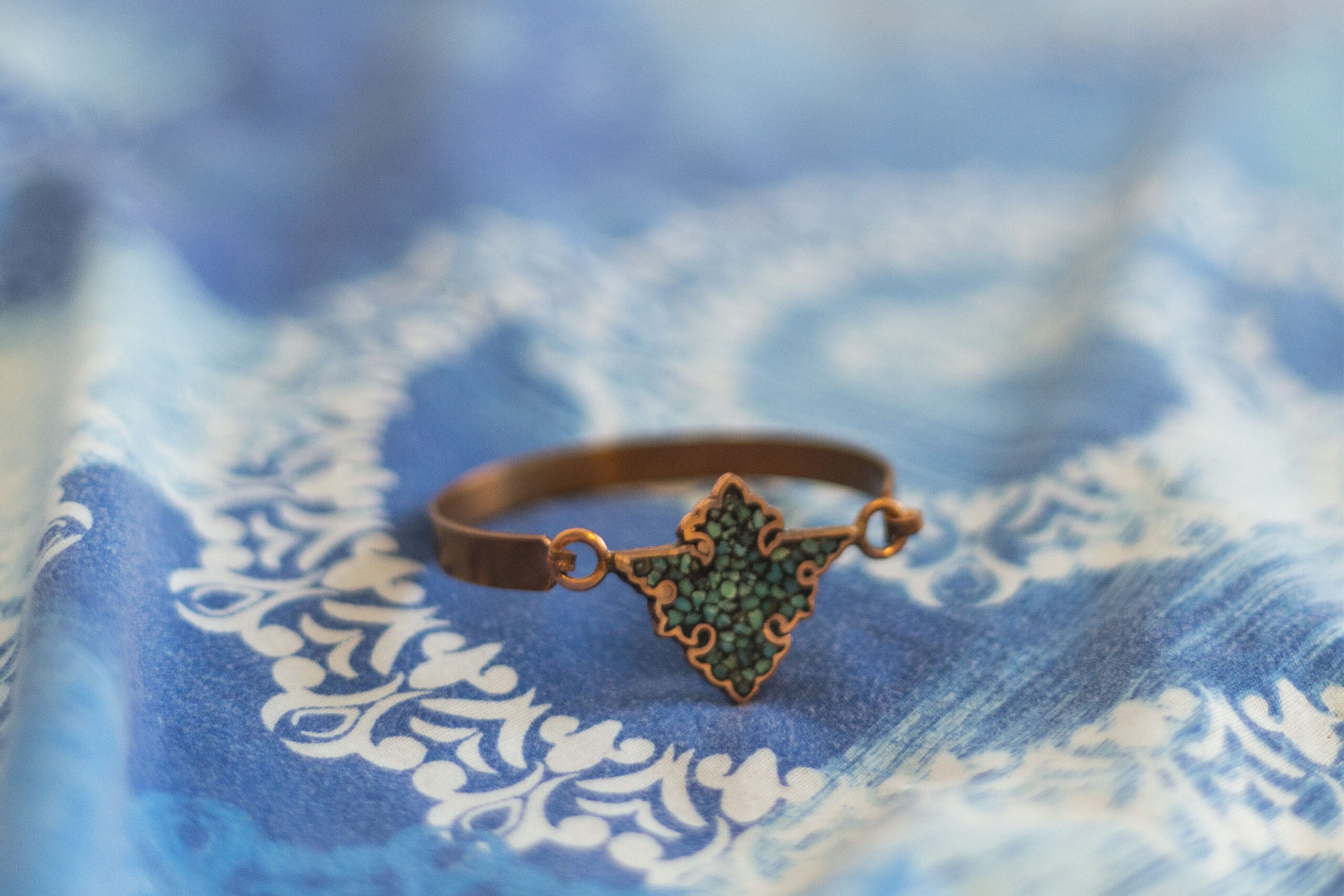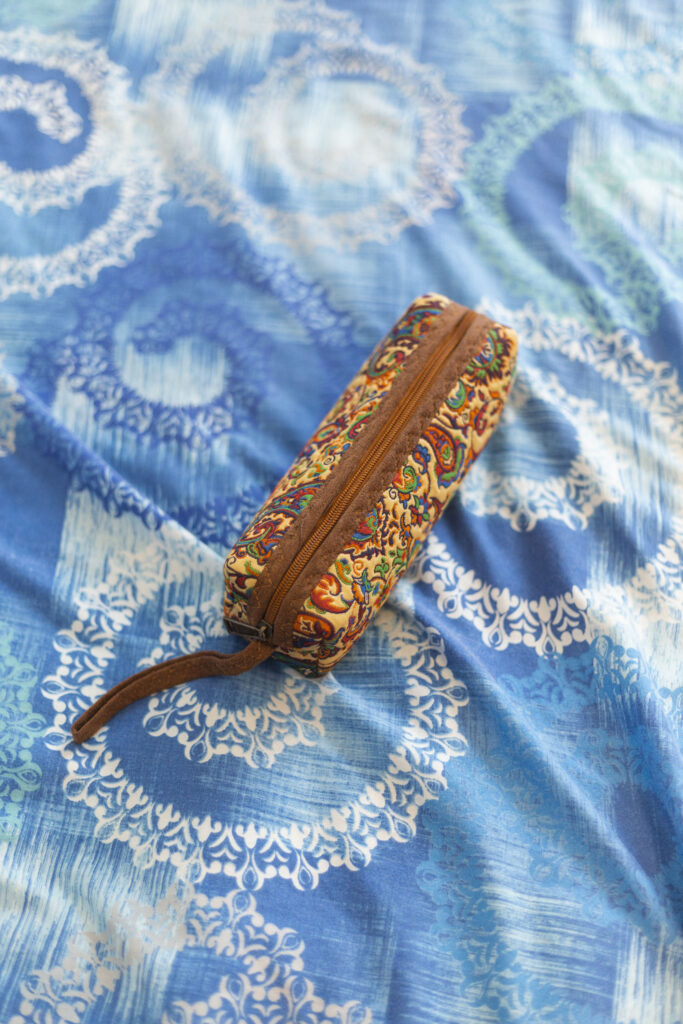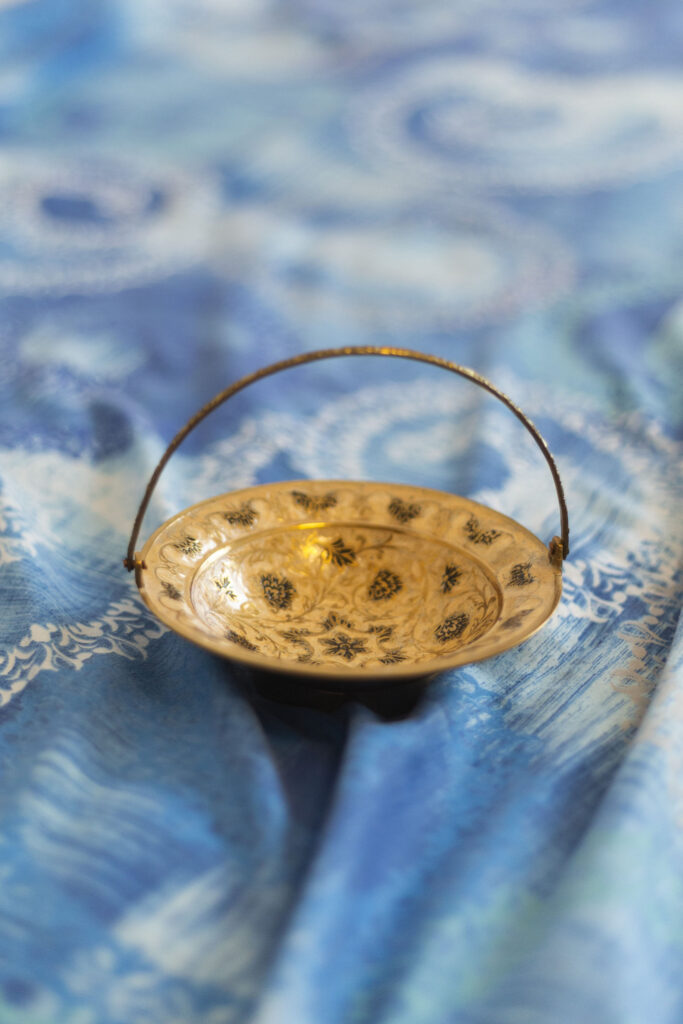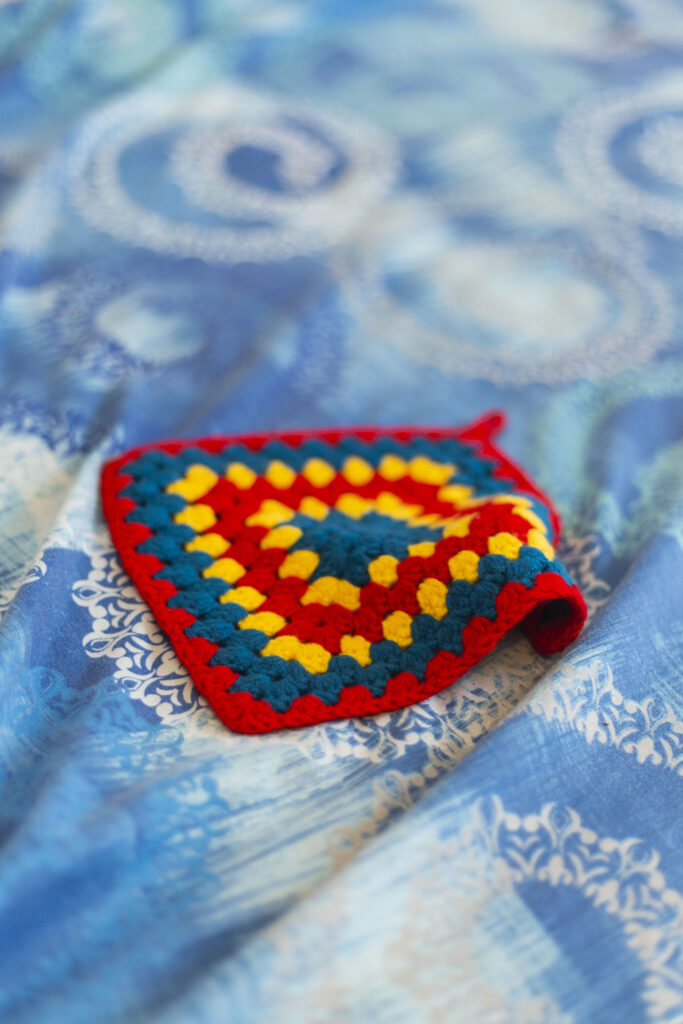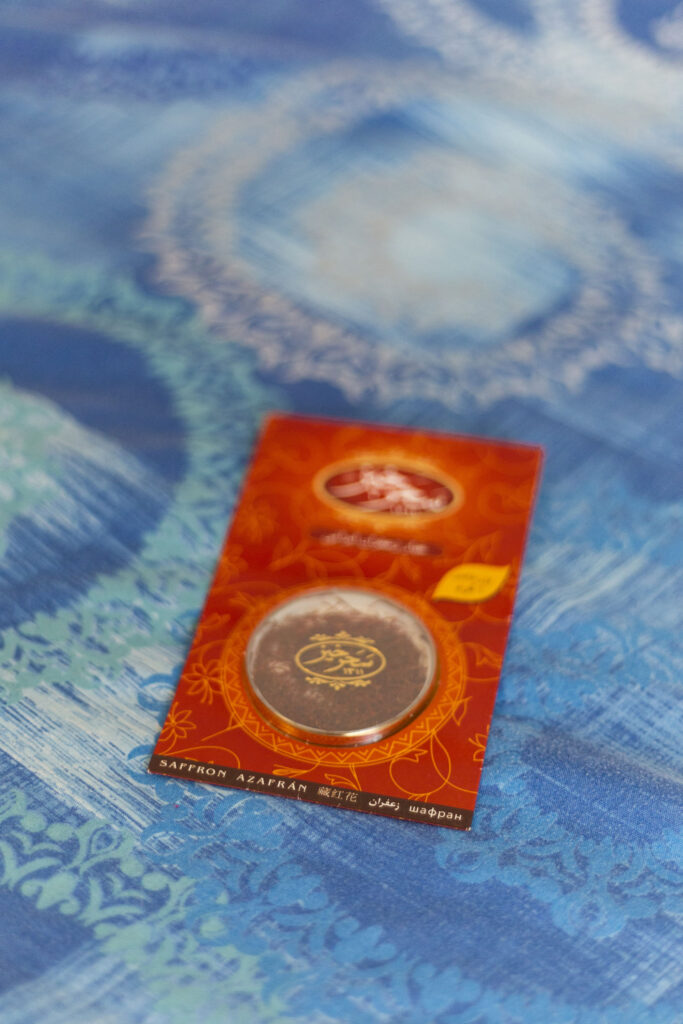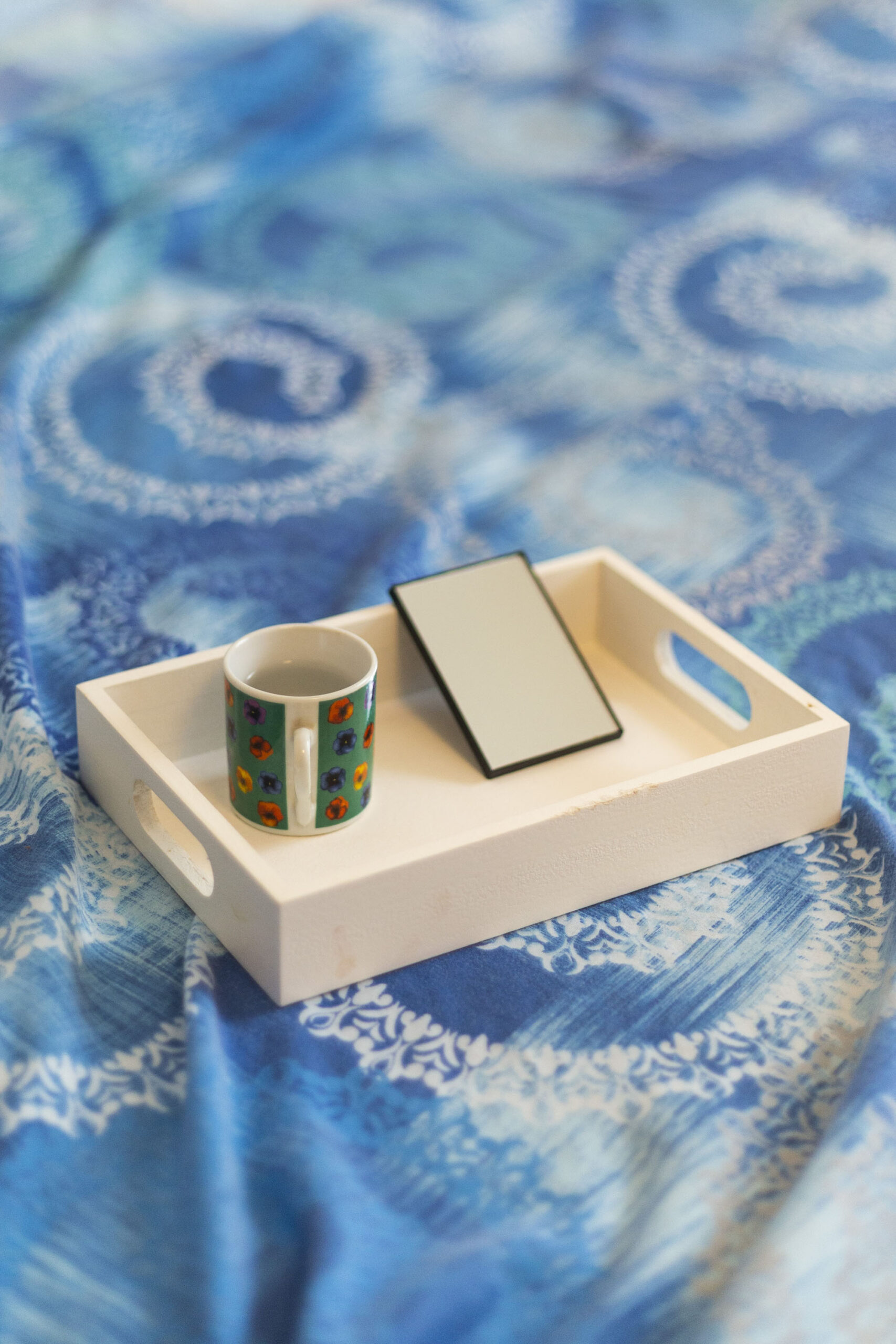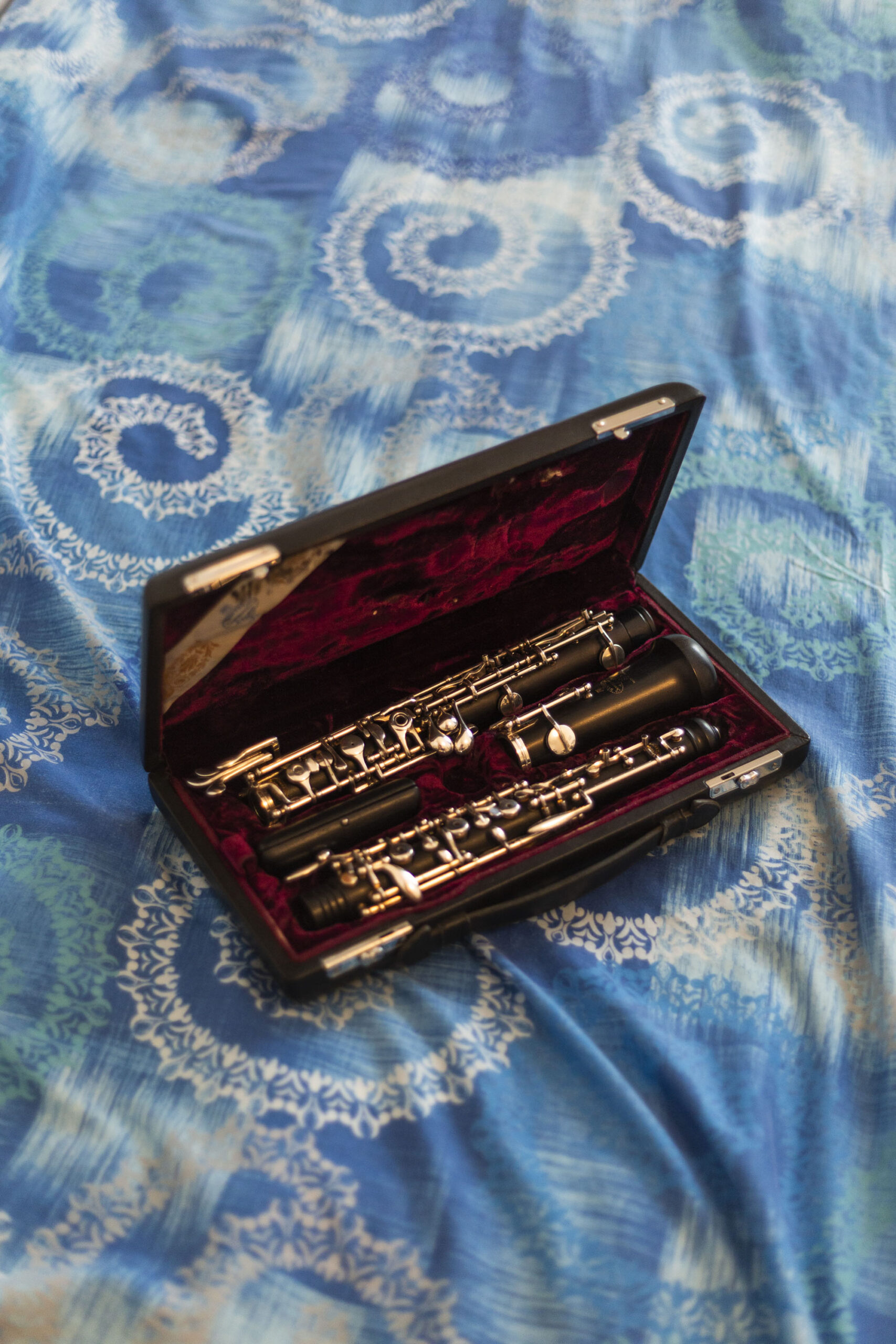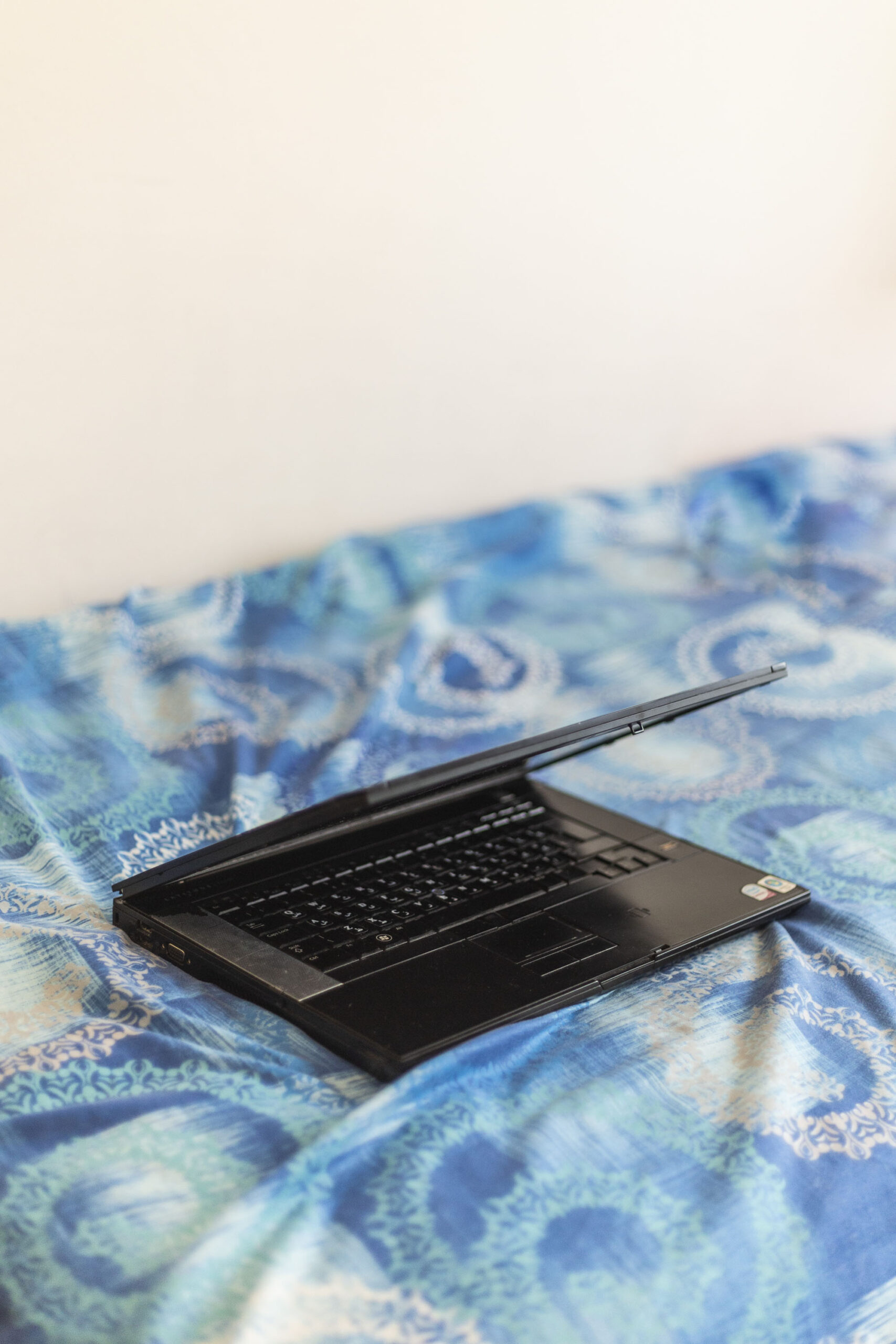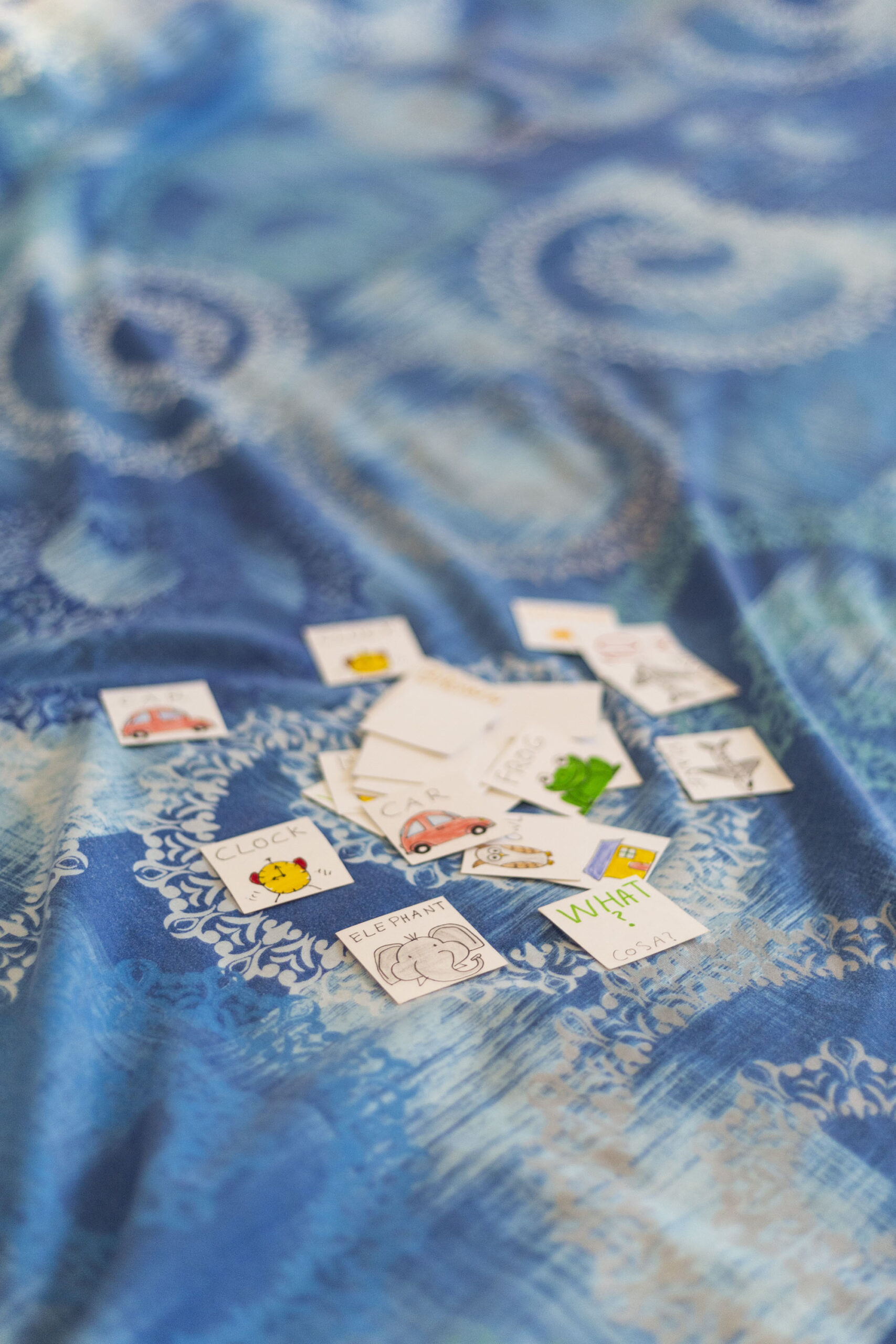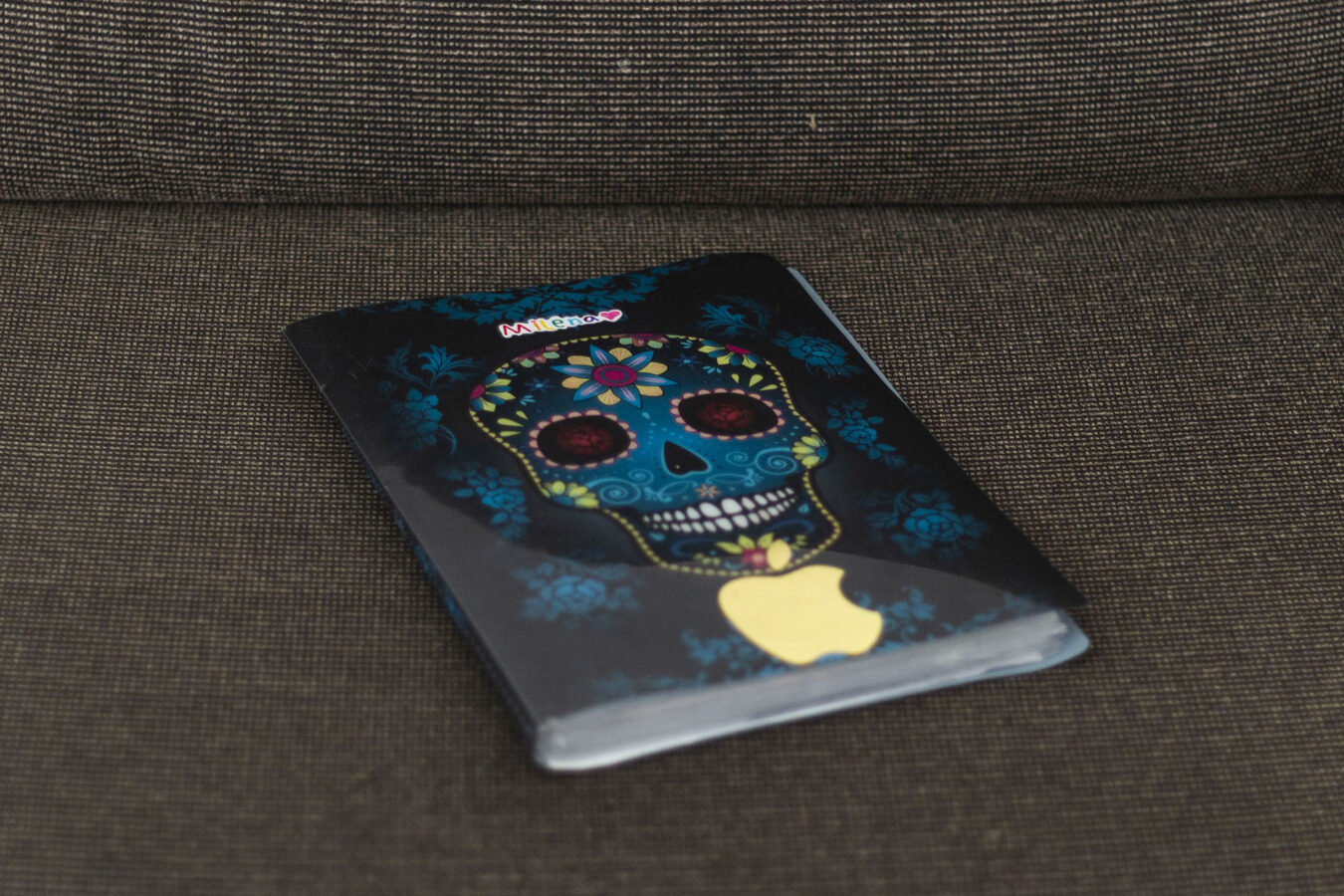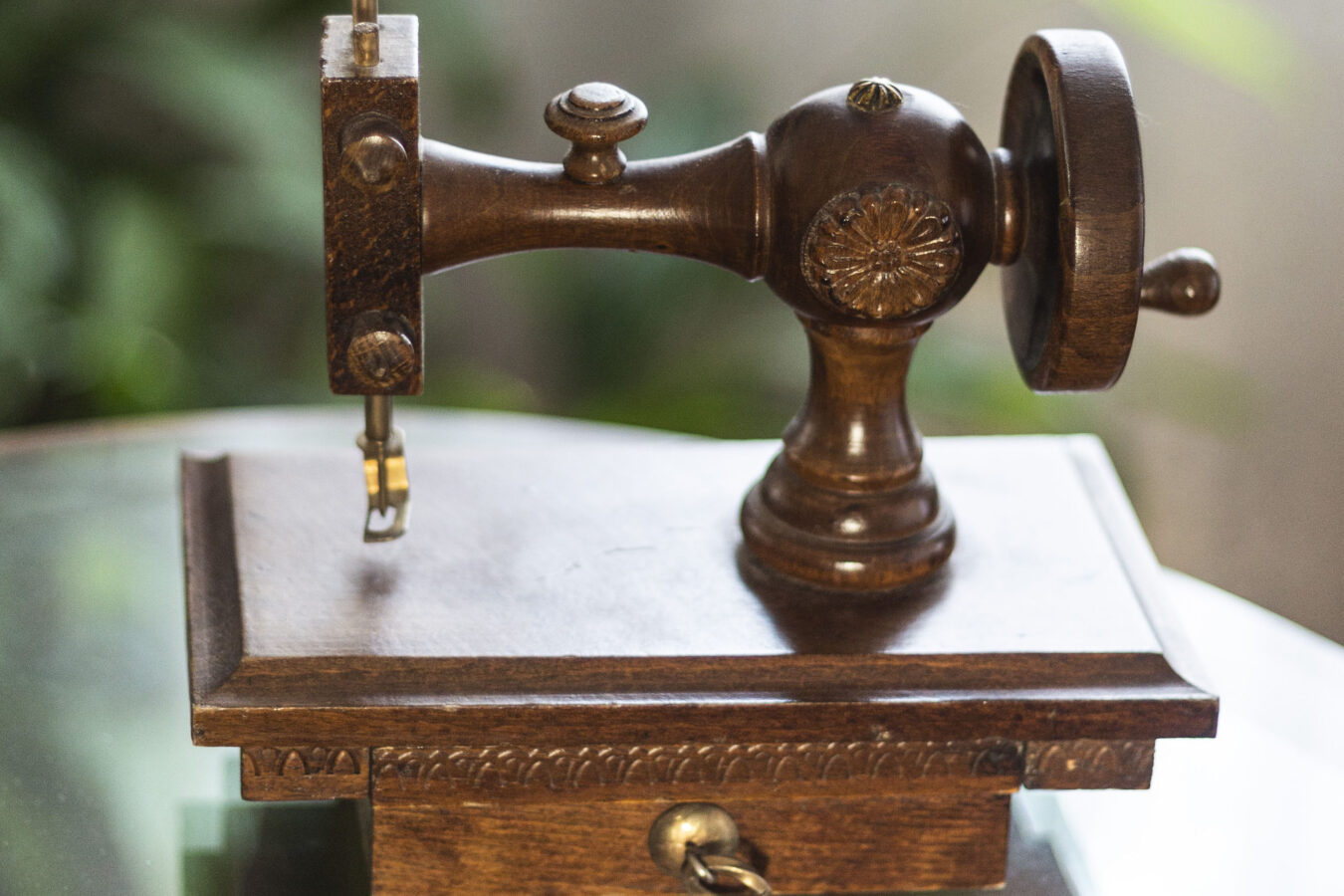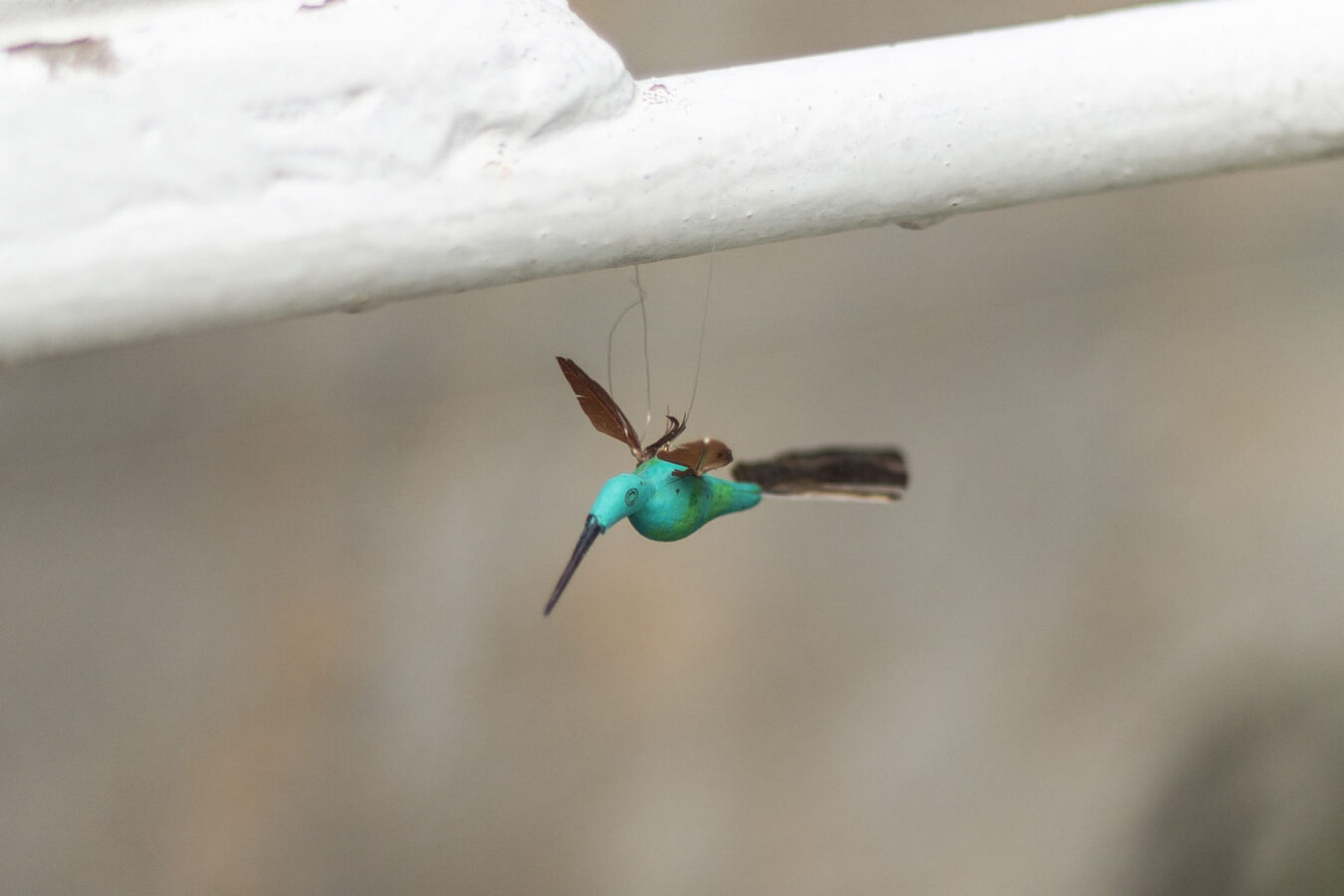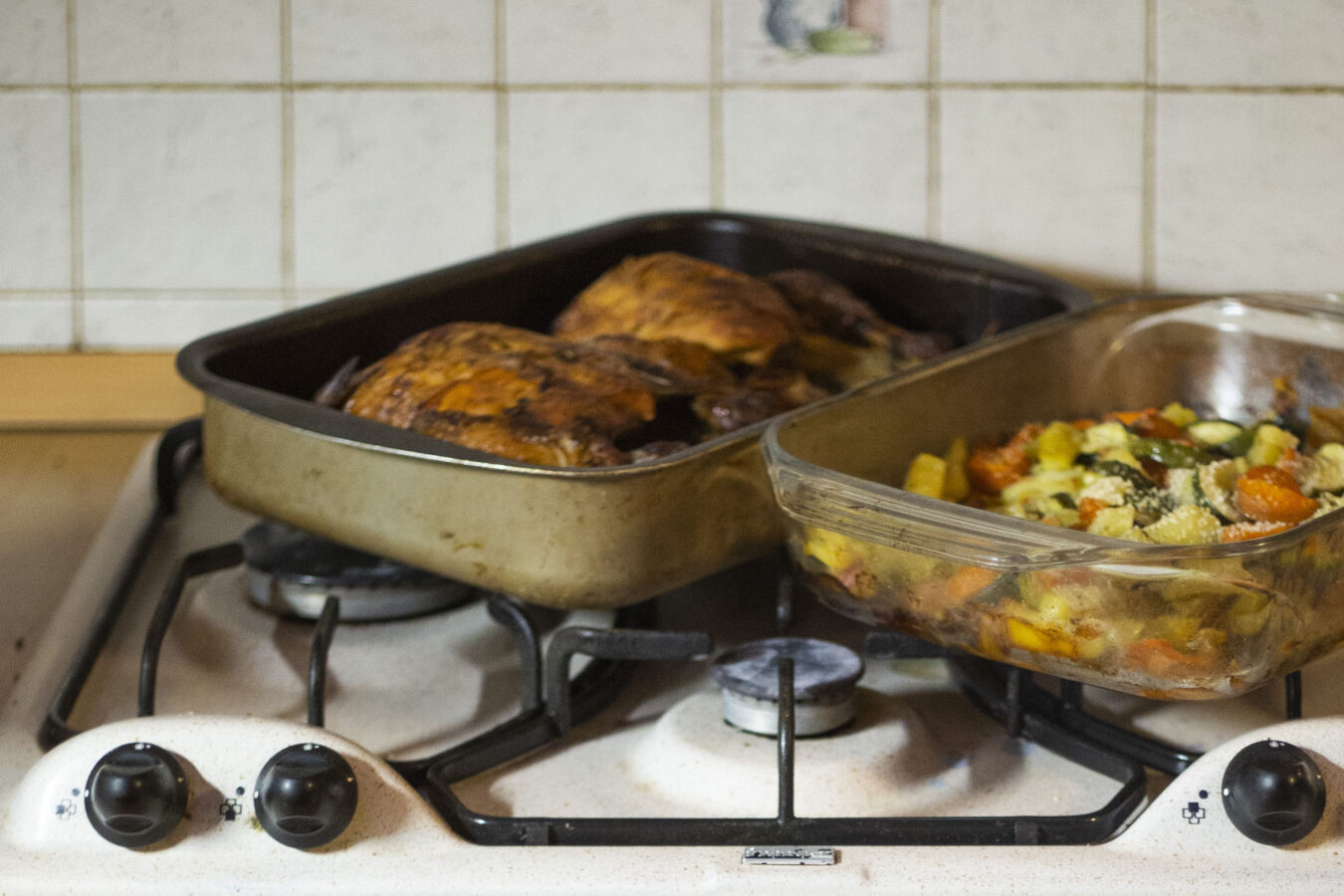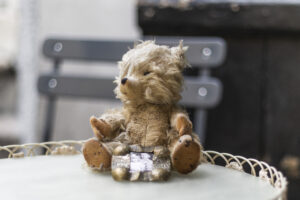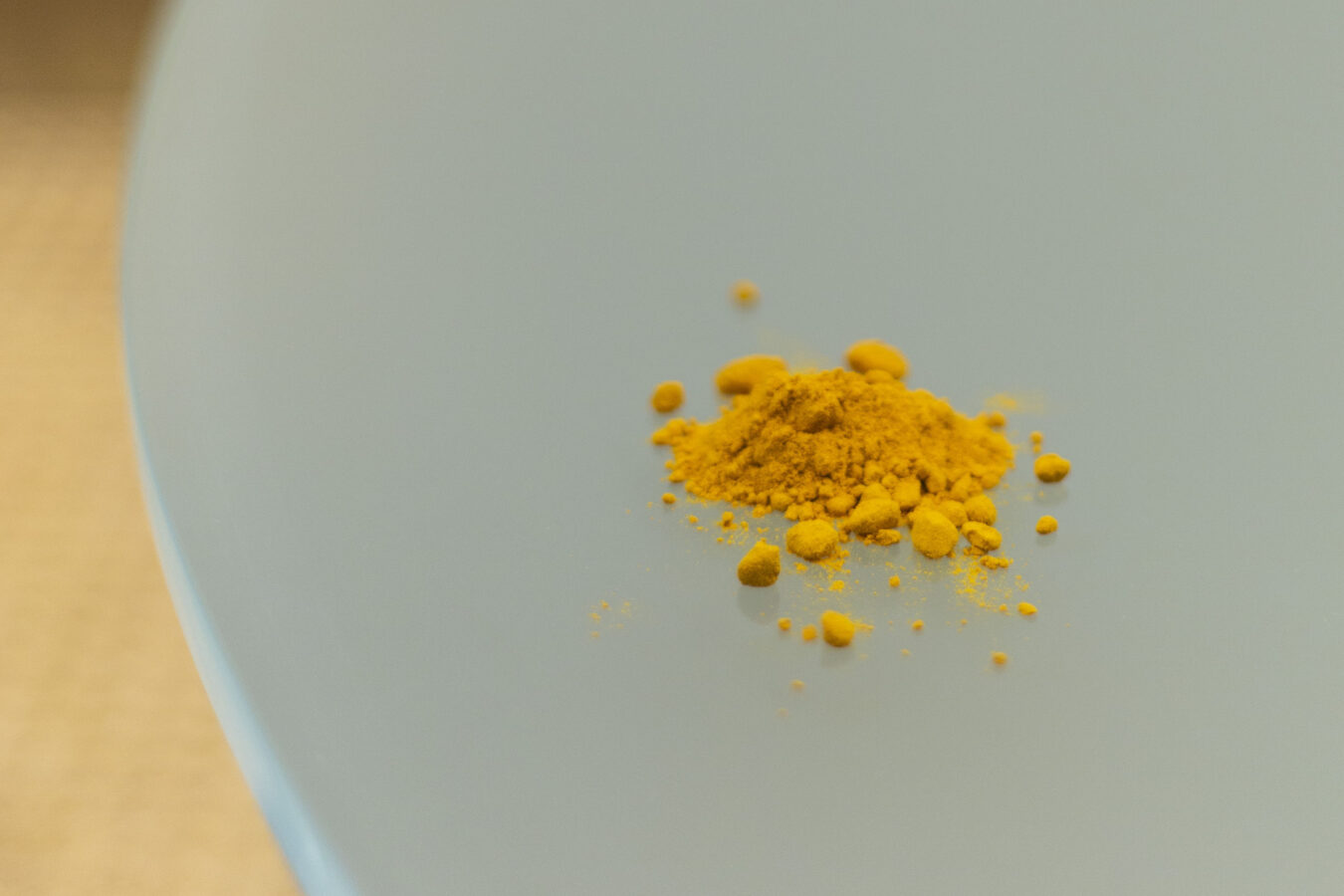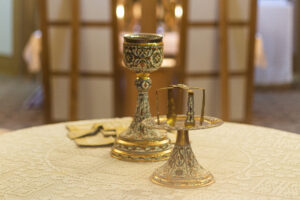Mi chiamo Setareh Haidari sono di Teheran ho 30 anni e vivo in Italia dal 2016. Sono musicista, babysitter e aspirante videomaker e addetta al montaggio.
Vi lascio due frasi scritte da mio zio che mi ricordano molto casa. Nella prima c’è scritto una cosa che può essere tradotta come: “Il canto piacevole della tua voce è come amore” e la seconda è la frase di una poesia “Nel mio orecchio sempre sento che stai arrivando/tornando da me” e per me è molto legato alla mia famiglia, li sento vicini… mi mancano. Una cosa particolare è che noi scriviamo da destra a sinistra, leggiamo da destra a sinistra, apriamo i libri al contrario, ma la musica ha una scrittura internazionale che va da sinistra a destra, è un linguaggio universale.
Da sempre, le mani del mio paese producono oggetti. Questo astuccio è le mani del mio paese. Lo porto con me e posso stringerle e non lasciarlo andare.
Frutta secca, caramelle, un pezzo di cioccolato. Il profumo di mia madre, la ciotola sul tavolo, forse arriva qualcuno. C’è sempre la possibilità di un ospite, c’è sempre bisogno di qualcosa di dolce. Anche ora, lontana, sono pronta ad accoglierlo.
Anche se dovrebbe stare in cucina, la tengo qui. Le ho dato un’altra vita, perché mi ricorda un pezzo della mia. Mi ricorda mia madre. Erano casa le sue dita mentre la facevano, ed è casa questa presina, ancora.
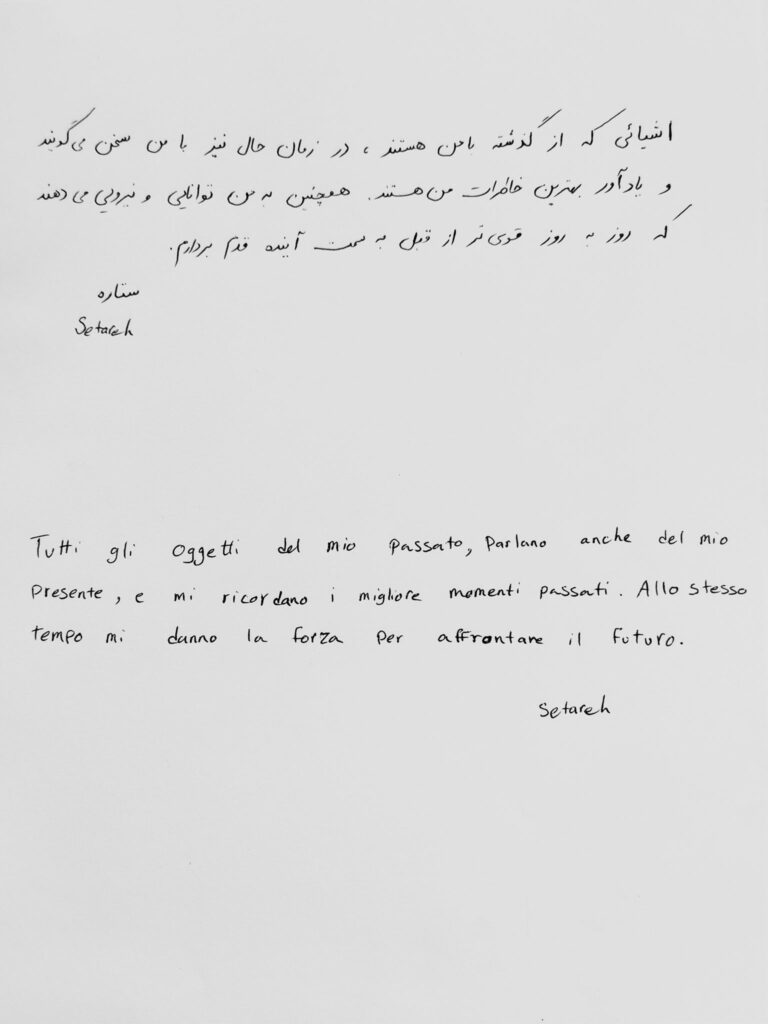
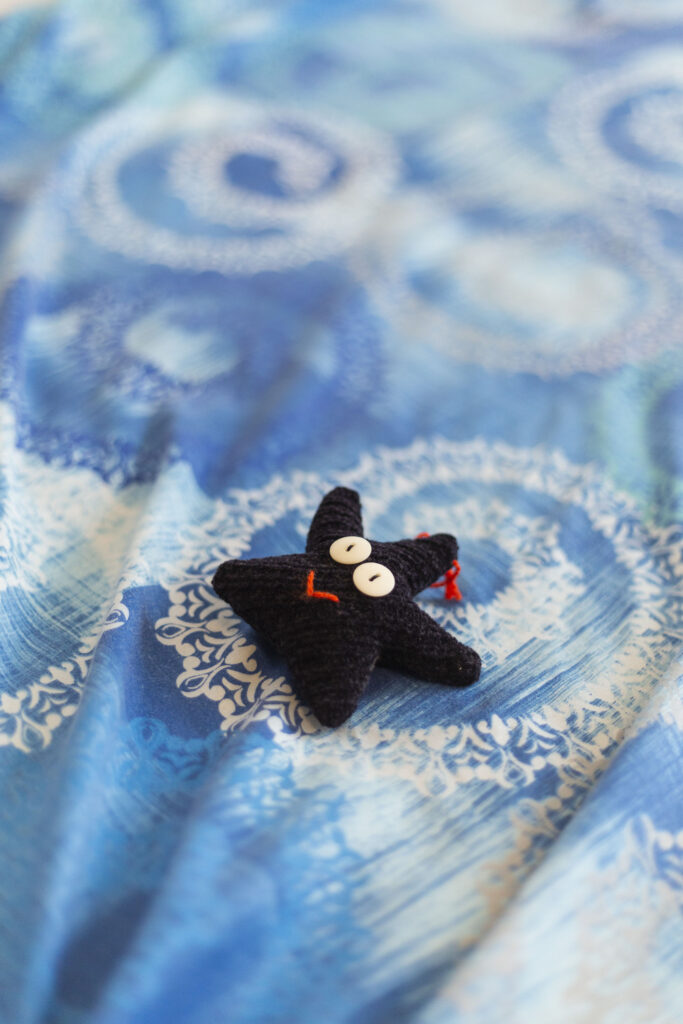
Un’altalena nel cuore di Teheran. Mio padre mi spinge e volo verso il cielo, se allungo una mano rubo il mio nome dalla notte. La bambina allunga il suo regalo, ha il senso del mio nome, dice. Tra poco non ci saranno più i bambini, ci separerà la scuola, fino all’università; non ci saranno più la metro, il traffico, i giochi. Rimarrà questa piccola stella di stoffa nera a dirmi la mia infanzia.
Costa più dell’oro, sai? Ma anche per quei soldi, non te lo darei mica. Chiudi gli occhi, avvicinati, lo senti anche se tengo la busta chiusa, vero? Cos’altro ha un profumo così, un colore così?
